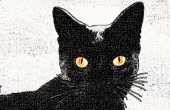Michel Sabbagh
Editorial Assistant of Qu Literary Magazine + Lead Writer on Cathnoquey: The Fractured Isles. Past QA Tester at Bethesda Softworks + Gamasutra/Southern Review of Books Bylines
Contributor II
- Plebian Penman
- Lurker
- Article of the Month
- ?
- Articles
4 - Featured
4 - Comments
71
- Ext. Comments
7 - Processed
0 - Revisions
0
- Topics
4 - Topics Taken
5 - Notes
10
- Topics Proc.
0 - Topics Rev.
0
- Points
1511 - Rank
105 - Score
675
Latest Articles
Latest Topics
Published | The Tug-Of-War In Video Game Remasters/Remakes Between Preserving The Original Release's Atmosphere And Crafting A More Detailed WorldWith the launch of the PlayStation 5 also came that of Demon’s Souls, the remake of the 2009 PlayStation 3 original to be precise. Reviews have generally praised Bluepoint Games’ attempts at revamping the graphical assets to show off the PlayStation 5’s increased horsepower. But some critics also pointed out that in the process of updating the art design, Bluepoint also sacrificed a bit of the original’s feel and atmosphere, the increased detail depriving the art of the lack of clarity that lent the original its eerie tension. In light of these observations, it’d be fitting to have an article that takes a closer look at video game remakes/remasters, particularly the tug-of-war between updating assets that may not hold up well to scrutiny on more modern displays and preserving as much of the source material’s original atmosphere as feasible. Other examples of game re-releases that attracted scrutiny for their reinterpretations of the original art design, such as the Silent Hill HD Collection and BioShock: The Collection, can be mentioned and explored. The potential article’s main line of inquiry could be the following: Why is there an appeal in preserving a game’s ambiguous details—particularly those stemming from technical limitations on original hardware—in the face of visual touch-ups for remasters/remakes? In the case of games with eerie ambiances, for example, could such an appeal lie in wishing to preserve the uncanny valley and fear of the unknown (e.g. unclear details on characters and environments that heighten the fear of the unknown and make players fill in the blanks with their imagination)?
|
Riddley Walker: The Myths and Sense of Self-Denial Humankind Perpetuates In The Face Of Discovery And ChangeFrom the use of mythical stories to drive groupthink regarding the leveraging of forbidden knowledge, to the characters’ struggle with suppressing their innate desire for progress of any kind, Riddley Walker minced no words when it came to exposing humankind’s willingness to live in ignorance of their past and inner selves, with the lead character exploring and trying to make sense of a post-apocalyptic England instead of staying put in his settlement and abiding by orthodoxy. An article on Riddley Walker would break down the through-line that guides the book. That through-line being how humankind can falsely equate knowledge (i.e. the insight one possesses) with wisdom (i.e. how one uses the insight they possess in their interest and that of society), and how the devastating consequences of such an equation can drive folks to fence themselves in instead of trying to discover and use knowledge more carefully. The article could also take a look at one of the novel’s foremost inspirations—St. Eustace and the Legend that epitomizes the Christian martyr—and detail the ways in which said inspiration contextualizes the novel’s backstory. The main line of inquiry to be pursued could be as follows: How should one keep up with the inner drive to seek and implement knowledge without getting ahead of themselves? Should one fully trust fate to guide them on the path to knowledge, even if taking said path can potentially mean running afoul of one's community and repeating the mistakes of the past?
|
A Canticle For Leibowitz: The Cycles Of Unearthing And Using Knowledge That Can Enhance and Undo CivilizationBetween the sense of historical recurrence that ends in nuclear annihilation, and the preservation of knowledge in a world initially hostile to education, A Canticle for Leibowitz looked at the issue of the human mentality never easily catching up with rapidly evolving technology or understanding its proper use, the Catholic Church acting as a gatekeeper for knowledge that can prove dangerous in the wrong hands. Especially those of states bearing the same ambition and sense of tribalism that destroyed civilization beforehand. An article on this topic would take a look at how A Canticle for Leibowitz tackles humankind’s relationship with knowledge, particularly sizable discoveries such as electricity and atomic energy. This topic could also explore backstory events such as the Simplification that saw the persecution of the literate and how this ingrained culture of mass ignorance resulted in the rising state forgetting the mistakes of the past and heading toward the same nuclear conclusion that undid the Earth in the first place. The primary line of inquiry to be pursued could be the following: How should we handle knowledge that can both (re)build and destroy life, particularly when we’re aware of how it was wrongly employed beforehand? |
Moby-Dick And Humankind's Fear Of And Desire To Conquer The UnknownBetween Melville's description of the color white as one of unsettling nothingness and the meticulous description of whales/whaling that can border on the obsessive (which could mirror Ahab's mindset), Moby Dick sports a kind of thematic link that emphasizes humankind's grappling with that which they either can't/won't understand or are willing to study if it means being better able to control the unknown. Have any of you gotten the impression that Ahab—in his single-mindedness—stands as a metaphor of sorts for the individual who not only dreads the strange, but also seeks to annihilate/tame it? |
Latest Comments
| The Storytelling Layers of Literary Merit | |
And given that issues surrounding labor and class remain relevant to this day, that level of recognition will likely stay afloat in the future. | The Storytelling Layers of Literary Merit |
And books that do both (i.e. entertainment and smarts) well can linger in the mind for quite a while. 🙂 | The Storytelling Layers of Literary Merit |
Thank you! | The Storytelling Layers of Literary Merit |
Pleasure’s mutual! 🙂 | The Storytelling Layers of Literary Merit |
I concur, save for the “not always make you want to read more” bit. A book with a resonant idea could have you re-read the prose just to reabsorb and better understand what moved you in the first place, thus refining your literary tastes and even influencing the kind of writing you do should you take a whack at storytelling. | The Storytelling Layers of Literary Merit |
Literary merit thus takes on a personal meaning. The key is to not use that personal meaning as dogma for what constitutes sound literature, which can beget gatekeeping. | The Storytelling Layers of Literary Merit |
Likely works with punchy themes relevant to our current and future iterations of society. Those tend to be the books that age gracefully and stick in folks’ minds for longer. | The Storytelling Layers of Literary Merit |




FWIW, I recall Harold Bloom including Riddley Walker in his Western Canon endeavor, so the idea of SFF works standing shoulder-to-shoulder with literary fiction isn’t far-fetched. But I agree that all this depends a lot on how audiences view the work in question (i.e. as a piece of entertainment, of enlightenment, or both).